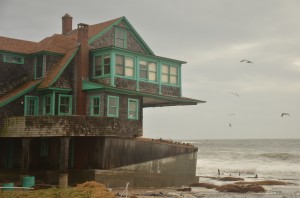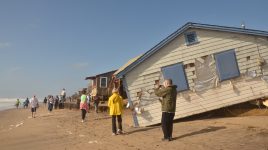
The consensus among scientists across multiple disciplines is clear: Global climate change is real, and society is just beginning to grapple with ways to adapt to its impacts. The effects are evident along our planet’s vulnerable slivers of coastline, home to the world’s 15 largest cities and 40 percent of the global population. Impacts will ripple throughout society in conflicts over resources, economic fallout from natural disasters, degradation of ecosystems, spread of disease, threats to food security and disruptive population shifts.
CRC is a globally recognized expert on issues affecting communities as they struggle to adapt to changing coasts. CRC partners with all levels of governments, nonprofit organizations, universities, businesses and the public to better understand, integrate and share knowledge about climate change, minimize its impacts and plan for the future. CRC takes an integrated, evidence-based approach to its climate change work.
Our guiding principles
Through decades of experience and lessons learned, CRC has developed these guidelines:
- Engage a broad group of stakeholders in a participatory process to assess vulnerability, select courses of action and implementation.
- Build support, tap into local knowledge and understand local issues and impacts to prepare a plan that most everyone supports
- Apply an evidence-based approach that relies on the best available science coupled with adaptive management that allows for improvements and changes as a situation evolves
- Focus on human perception of risks, which is what drives processes and decisions Consider a community’s development priorities as the starting point into which climate change adaptation and mitigation are integrated rather than using climate change as the starting point
- Stress the need for short-term sacrifices to achieve long-term gains
- Emphasize collaboration among local, national, regional experts and institutions Include climate change adaptation in official management systems (disaster, coastal zone, fisheries, governance)
- Be mindful of the balance between adaptation and mitigation with “no-regrets” adaptation a priority; mitigation can be an option when cost effective and an investment in the long-term good
- Tailor coastal adaptations to the local context through an inclusive process that matches climate change issues with local capabilities
- When needed, develop the capacity of local people and institutions to sustain a CCA plan and ensure they have the tools to do so
- Be sure all parties know that this work takes time and attention to details—even those tedious tasks at start-up—but devoting that effort is critical to ultimate and lasting success
- Avoid duplication of other donor-funded projects; link your efforts to other relevant initiatives, activities and donors



